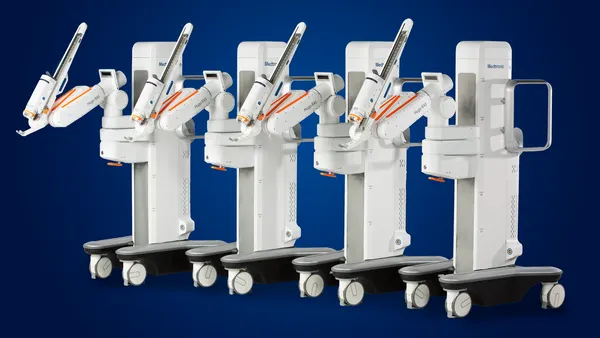Dive Brief:
- The Federal Trade Commission is challenging patents for 17 drugs marketed by Abbvie, AstraZeneca, GSK and other pharmaceutical companies, claiming Tuesday that the intellectual property was “improperly or inaccurately listed” in a regulatory database.
- The notice letters are largely about products with specialized injectors or inhalers, such as Viatris’ anaphylaxis shot EpiPen and GSK’s asthma drug Advair, which rely on those devices to deliver a precise dose. The FTC said it has filed a dispute with the Food and Drug Administration seeking to have the patents removed from the database, called the Orange Book.
- The FTC’s action comes two months after it approved a policy statement saying the agency would “use its full legal authority” to invalidate improperly listed patents. Drugmakers are increasingly under scrutiny for creating so-called “patent thickets” that make it difficult for generic challengers to enter the market.
Dive Insight:
The drugs targeted by FTC are largely older products that have retained some market power because competitors can’t easily duplicate their effectiveness when combined with a specialized delivery device.
“Wrongfully listed patents can significantly drive up the prices Americans must pay for medicines and drug products while undermining fair and honest competition,” said FTC Chair Lina Khan in a statement.
For example, Advair’s main patent expired in 2010, but it remains a blockbuster drug, earning GSK 863 million pounds, or about $1.1 billion, over the first nine months of 2023.
Even as Advair’s main patent expired, former CEO Andrew Witty predicted the drug would have a long revenue tail because of device’s intellectual property. The Advair patent the FTC objects to concerns an “acutation indicator” used on the aerosol inhaler that’s paired with the Advair HFA product.
EpiPen has been a controversial product, spotlighted in 2016 because of a large price increase. The FTC is challenging the listing of four patents covering the EpiPen and EpiPen Jr. autoinjector, which allows the medication to be quickly injected into a person experiencing severe allergic reactions.
Similar products like Kaleo’s Auvi-Q and Impax Laboratories’ Adrenaclick also are facing FTC scrutiny.
On the respiratory medicine side, FTC is objecting to patents on two Teva’s ProAir products and its QVAR; Norton’s QVAR RediHaler; four products from Boehringer Ingelheim including Spiriva; AstraZeneca’s Symbicort; and two other GSK products.
AbbVie, meanwhile, is facing a challenge to four patents for its Restasis Multidose product, which relies on a specialized eye dropper.












